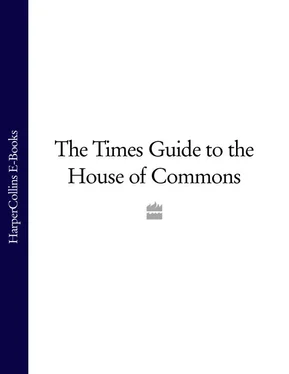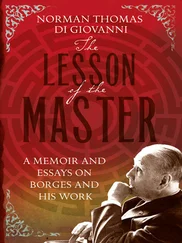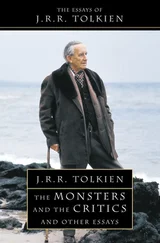1 ...6 7 8 10 11 12 ...46 On the stroke of 10pm, the exit poll commissioned by the BBC, ITN and Sky suggested that the Tories would win 307 seats, Labour 255 and the Liberal Democrats 59, pointing to the first hung Parliament for 36 years. Its forecasting was immediately doubted by psephologists, both amateur and professional, who believed that a survey of 18,000 voters at 130 polling stations would fail to catch the Lib Dem surge. In fact, it turned out to be remarkably prescient.
An eleventh-hour surge of voters, Lib Dem or otherwise, did, however, surprise election officials across the country. Queues of voters, some who had been waiting up to an hour, were turned away from polling stations in Sheffield, Leeds, Manchester, Chester, Lewisham and Hackney. There, officials applied the letter of the law and closed the door on anyone who had not been admitted and received a ballot paper. Their counterparts in Newcastle and Sutton Coldfield defied electoral law and stayed open past 10pm to let people vote. The scenes of chaos, to which the police were called in some cases, triggered a review by the Electoral Commission that could have far-reaching implications for the way Britain votes.
Britain woke on May 7 to a landscape unfamiliar to this generation of politicians. There was no clear winner and each party leader had reason to feel disappointed. Mr Cameron had failed to translate an economic crisis and weariness with 13 years of Labour into an overall Tory majority. Mr Brown had polled 29 per cent, only marginally above the party’s disastrous showing in 1983, and had lost 91 seats. For all the enthusiasm that surrounded Mr Clegg during the campaign, he had lost five seats.
Voters had handed them not just the first hung Parliament for 36 years, but the most complicated Commons arithmetic since the 1920s. Mr Cameron, with 306 seats, was well short of the 326 that guaranteed a Commons majority. To soldier on alone as a minority government, he would at least need an assurance of broad Liberal Democrat support, known as a “confidence and supply” arrangement, under which the third party would not stand in the way of a Budget or Queen’s Speech in return for some concessions.
On the other side, Labour, with 258 seats, and the Liberal Democrats, with 57, were also well short of being able to form a Lib-Lab pact that commanded a Commons majority. The only certainty was that the Queen would not be receiving any of the party leaders this post-election Friday. Instead, she, and the rest of the country, witnessed an extraordinary three-act drama played out across Westminster as the three leaders began to play the hands dealt them by voters.
Mr Clegg moved first. Arriving at Liberal Democrat headquarters in Cowley Street after taking the dawn train from his constituency in Sheffield, he said that Mr Cameron had the right to try first to form a government. It was a momentous nod, but one that he had set himself up for by insisting during the campaign that he would respect the rights of the party that won the most seats and most votes.
Mr Brown was not for giving in. He pre-empted a Tory response with a brazen assertion of prime ministerial power, emerging from the front door of No 10 to remind the country that he remained in charge. He said his two leadership rivals should take as much time as they felt necessary to see if they could reach a deal. “For my part, I should make clear that I would be willing to see any of the party leaders.”
Within the hour, Mr Cameron was making what he called “a big, open and comprehensive offer to the Liberal Democrats”. Speaking at the St Stephen’s Club in the shadow of a portrait of Churchill, himself at different times a Liberal and a Conservative, Mr Cameron sketched out a possible deal for “collaborative government” between the parties. He did not use the word coalition. After a night grappling with the possibilities, though, that was what he was pitching.
With theatrical timing, Saturday required the three leaders to attend the Cenotaph for the 65th anniversary of VE-Day. Normal service would have seen the Prime Minister approach to lay his wreath first, followed by the two other party leaders in turn. The occasion was choreographed, though, to reflect the election result: the three approached the Cenotaph together. The body language ranged from uncertain to icy.
The first public sign of the talks came on Sunday when the negotiating teams – William Hague, George Osborne, Oliver Letwin and Ed Llewellyn for the Tories; Danny Alexander, Chris Huhne, David Laws and Andrew Stunell for the Lib Dems – arrived at the Cabinet Office. The arrangement for the use of government property with civil servants on hand to answer questions about policies and costings was a first, codified in advance by Sir Gus O’Donnell, the Cabinet Secretary, in preparation for just such an electoral outcome.
To the background clatter of news helicopters overhead, a crowd of political tourists joined reporters outside the teal door of 70, Whitehall, to await news of who would govern and how. The parties left after nearly six hours without a deal. Meanwhile, ominously for the Tories, Mr Brown returned from Scotland and went almost immediately into a meeting with Mr Clegg at the Foreign Office. Cabinet ministers, including Lord Mandeslon, Lord Adonis, Alan Johnson, Ben Bradshaw and Peter Hain were offering increasingly vocal support for the idea of a “rainbow coalition” of Labour, the Liberal Democrats, the nationalist parties and independents. It was clear that Mr Clegg was making Mr Cameron sweat.
Tory perspiration turned to desperation on Monday when Mr Brown played his final card. After two further conversations with Mr Clegg, he stood in Downing Street to announce that the Liberal Democrats wanted to open formal talks with Labour and that he intended to step down. His announcement reversed the chronology of his discussions with Mr Clegg. The Liberal Democrat leader had made clear during the campaign that he could not prop up a defeated Mr Brown in Downing Street. The Prime Minister’s departure, even if at a later date, was a pre-requisite for the start of Lib-Lab talks.
Nonetheless, Mr Brown’s bombshell took the Tories by surprise. Labour, it turned out, had sent its own team of negotiators – Lord Mandelson, Lord Adonis, Ed Balls and Ed Miliband – to talk to the Liberal Democrats on Saturday. Throughout the weekend senior Liberal Democrats, including Lord Ashdown of Norton-sub-Hamdon, Charles Kennedy, Sir Menzies Campbell and Vince Cable, had been urging Mr Brown to budge and thus usher in the “progressive alliance” or realignment of the Left that they, in varying degrees, had devoted their political lives to achieving. The message received in Downing Street from the senior Lib Dems was clear: we do not want to go into coalition with the Tories.
Mr Cameron and those around him had woken on Monday believing that they were heading to Downing Street. Despite offering Mr Clegg a referendum on the alternative vote system and Cabinet seats, they went to bed fearing that they were out of the game. The proposed Lib-Lab deal hit immediate problems, however, on the Tuesday morning. First, senior Labour figures including David Blunkett and John Reid hit the airwaves to warn that the country would not wear what was being dubbed a “coalition of the losers”. The maths were also against it: adding the three Welsh nationalists, four non-Unionist Ulster MPs, one independent Unionist and Britain’s first Green MP to the Labour and Lib Dem ranks gave such a coalition only 324 MPs, hardly the basis for stable government.
Secondly, the two parties’ negotiating teams fared badly. Labour subsequently accused the Liberal Democrats of making unrealistic spending demands; the Liberal Democrats accused Labour of posturing and failing to take them seriously. The upshot was that shortly after lunch, the Tory and Liberal Democrat negotiating teams were back in the Cabinet Office. There, they hammered out terms of a seven-page document that expressed where they agreed and where the Lib Dems would be allowed to opt out of government policy, such as on the future of Trident.
Читать дальше












